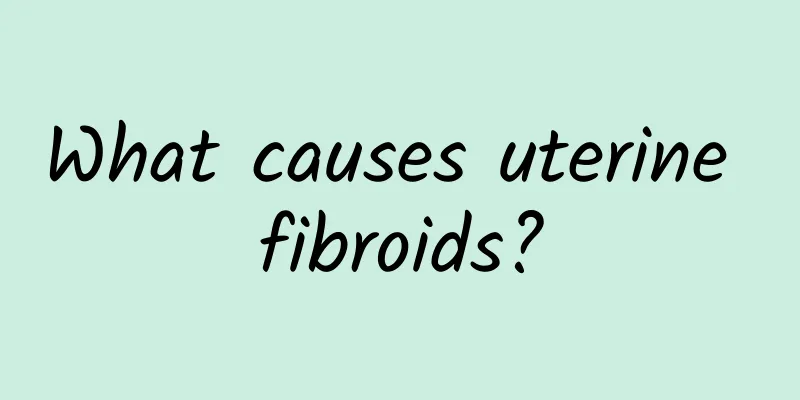What is the reason for heavy menstrual flow and abdominal pain?

|
What is the reason for heavy menstrual flow and abdominal pain? Heavy menstrual flow and abdominal pain are likely related to the disease itself, such as chronic pelvic inflammatory disease. Repeated attacks of this disease can easily invade the uterine cavity tissue and cause discomfort. Common symptoms include increased menstrual flow, prolonged or shortened menstrual cycle, abdominal pain, abnormal leucorrhea, etc. First, adenomyosis Adenomyosis can easily damage the myometrium and endometrial glands, causing patients to experience abnormal symptoms such as increased menstrual flow, prolonged menstrual period, lower abdominal pain, pelvic pain, etc. Second, endometritis Abdominal pain due to heavy menstrual flow should also be considered as being caused by endometritis, because endometritis can easily invade and damage the endometrium, causing various discomforts, the most common of which are lower abdominal pain, abnormal menstruation, increased vaginal secretions, etc. Third, endometriosis The typical symptom of endometriosis is abnormal menstruation, which is mainly manifested as increased menstrual volume, prolonged menstrual cycle, prolonged menstrual bleeding and premenstrual spotting. Fourth, endometrial polyps Endometrial polyps can easily squeeze and damage the endometrium and its surrounding tissues, causing uncomfortable symptoms such as abnormal menstruation, postmenopausal vaginal bleeding, abnormal leucorrhea, etc., which are harmful to health. Fifth, uterine fibroids Although uterine fibroids are benign diseases, they can also cause various discomforts, the most common of which are irregular vaginal bleeding, abnormal menstruation, increased leucorrhea, lower abdominal pain, etc. 6. Uterine and reproductive tract malformations Uterine and reproductive tract malformations can easily lead to obstruction of menstrual blood discharge, causing uterine contractions, and abnormal symptoms such as abdominal pain, abnormal menstruation, and increased vaginal discharge. |
<<: What causes menstrual toothache?
>>: What to eat during menstruation to relieve dysmenorrhea
Recommend
Can I still get pregnant if I have uterine effusion?
Uterine effusion affects health. It often causes ...
What is the normal thickness of the endometrium?
The endometrium is a layer of tissue inside the u...
A new weight loss tool helps you lose 10 kg in a month! Endoscopic sleeve gastroplasty is safe and effective in improving metabolic syndrome
Obesity is one of the negative factors that affec...
What should I do if the first menstrual flow after IUD removal is extremely heavy?
What should I do if my menstrual flow is very hea...
What are the causes of cervicitis in women? How can women prevent cervicitis?
There are many reasons why women suffer from cerv...
What are the differences in the early identification methods of acute and chronic adnexitis?
The early symptoms of adnexitis are relatively hi...
Is abdominal wall endometriosis serious? What are the symptoms?
Is abdominal wall endometriosis serious? Abdomina...
It's been seven days since my period began, but I still feel a little shaky
It's been seven days since my period began, b...
To increase muscle, burn fat and achieve balanced nutrition, complementary foods are essential! There are 4 nutrients in complementary foods that complement each other
Regarding dietary recommendations during fat loss...
Diabetes is like an organ soaked in sugar water! Nutritionist Chen Yichun: 3 tips for controlling blood sugar in the pre-diabetes stage
Diet control is not only necessary when you have ...
Good weight loss method diet exercise 5:5
(Author: Park Soo-hee) I thought I had the correc...
Is the mass in the abdomen a uterine fibroid? What are the dangers of uterine fibroids?
What are the manifestations of malignant uterine ...
Black beans help with weight loss and detoxification, "these two major" ingredients work wonders! Nutritionist Chen Yanfu: 3 tips for choosing black beans
The black bean diet is popular among Korean stars...
How to relieve menopausal syndrome
Menopause is a physiological stage that women mus...
What are the treatments for pelvic inflammatory disease?
What are the treatment drugs for pelvic inflammat...









